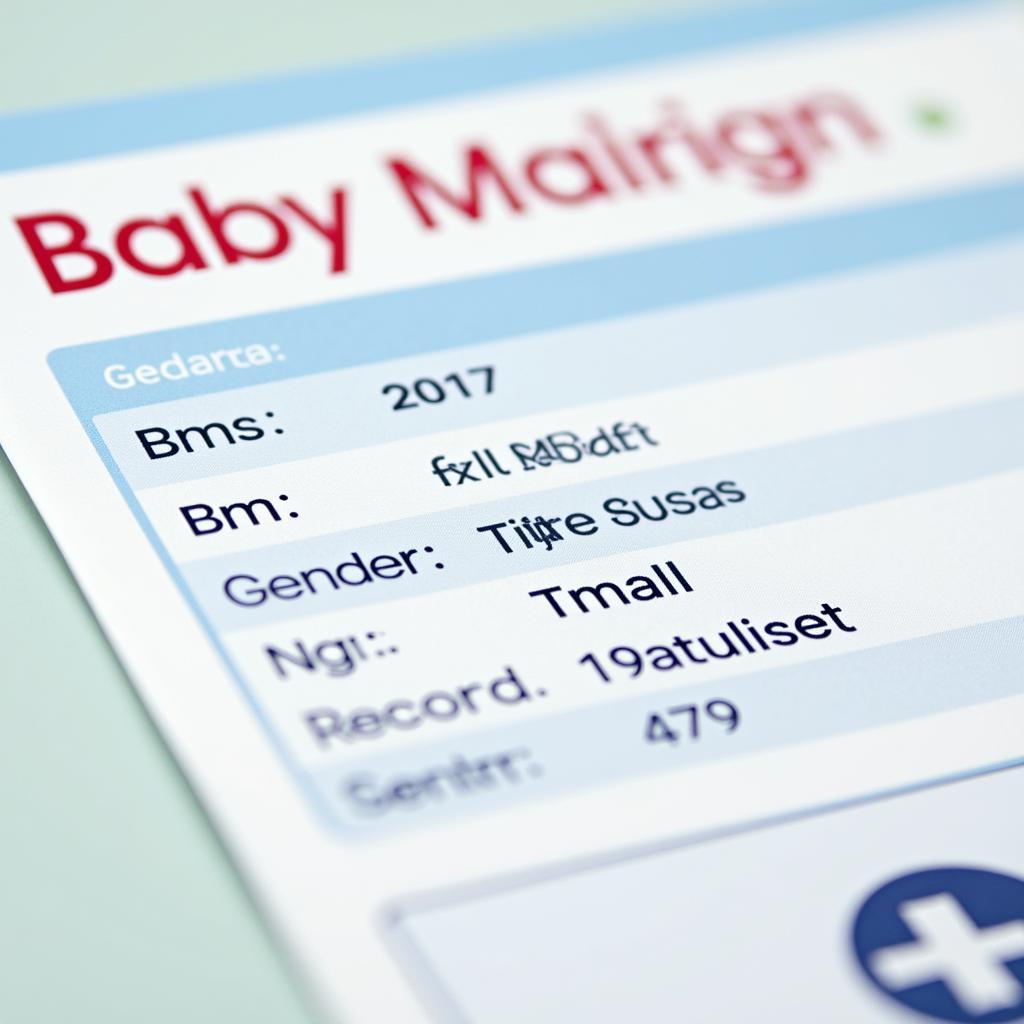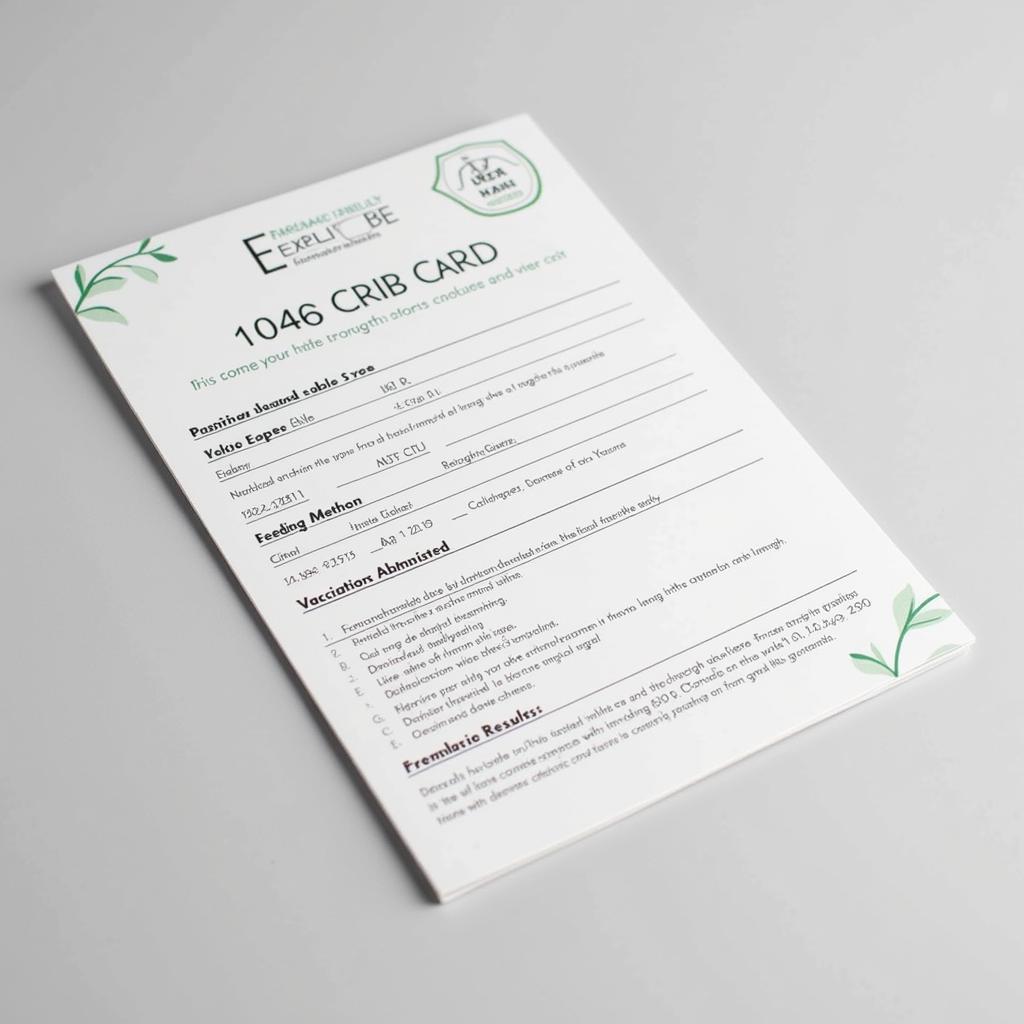Bringing your newborn home from the hospital is a joyous occasion, but it can also be a little overwhelming. You’re suddenly responsible for a tiny human who communicates in cries and coos. One of the most valuable tools you’ll receive is your baby’s crib card, a seemingly simple piece of paper that holds a wealth of information about your little one’s time in the hospital. This guide will help you understand all the details and abbreviations on your baby’s crib card, empowering you to provide the best possible care.
Unlocking the Secrets: What’s on a Crib Card?
A crib card, also known as a newborn identification card, is more than just a name tag. It’s a comprehensive record of your baby’s vital information during their hospital stay. While specific details might vary between hospitals, you can expect to find:
- Basic Identifying Information: This includes your baby’s full name, date of birth, time of birth, and gender.
- Medical Record Number: This unique number connects your baby to their medical records.
- Parent(s)’ Information: The hospital will record the names of the parents, ensuring proper identification.
 Newborn Baby Crib Card
Newborn Baby Crib Card
Decoding the Medical Jargon: Understanding Your Baby’s Vitals
The crib card also provides crucial medical information that paints a picture of your baby’s health:
- Birth Weight and Length: These measurements provide a baseline for tracking your baby’s growth and development.
- Apgar Scores: This scoring system, assessed at one and five minutes after birth, evaluates your baby’s heart rate, breathing, muscle tone, reflexes, and skin color, indicating their overall well-being.
- Feeding Method: Whether your baby is breastfed, formula-fed, or both will be noted, guiding your feeding journey at home.
Beyond the Basics: Additional Information on Your Baby’s Crib Card
Depending on the hospital’s practices and your baby’s specific needs, the crib card may include:
- Medications Administered: If your baby received any medications like vitamin K or antibiotics, these will be documented.
- Vaccinations: The crib card will list any vaccinations your baby received, such as the Hepatitis B vaccine.
- Hearing Screening Results: Hospitals routinely screen newborns for hearing loss, and the results are typically recorded on the crib card.
 Hospital Crib Card Details
Hospital Crib Card Details
Why is the Crib Card Important?
This seemingly simple card plays a vital role in ensuring your baby’s well-being:
- Continuity of Care: The information on the crib card allows healthcare providers to understand your baby’s medical history, facilitating informed decisions regarding their care.
- Early Identification of Concerns: By tracking details like birth weight and feeding methods, healthcare providers can quickly identify potential issues and intervene promptly.
- Peace of Mind for Parents: Having a readily available record of your baby’s vital information can provide you with peace of mind and assist you in making informed decisions about their care.
Crib Card FAQs: Addressing Common Questions
1. What should I do with the crib card after leaving the hospital?
Keep the crib card in a safe place with your baby’s other important documents. You’ll need it for pediatrician appointments and other medical visits.
2. How long should I keep my baby’s crib card?
Consider keeping the crib card indefinitely as part of your child’s medical history.
Need More Information?
We understand that navigating the world of newborn care can be overwhelming. If you have any questions or concerns about your baby’s crib card or need further assistance, our dedicated team at San Jose Hospital is here for you 24/7. Contact us at 02437655121 or email us at [email protected]. You can also visit us at Số 298 Đ. Cầu Diễn, Minh Khai, Bắc Từ Liêm, Hà Nội, Việt Nam.